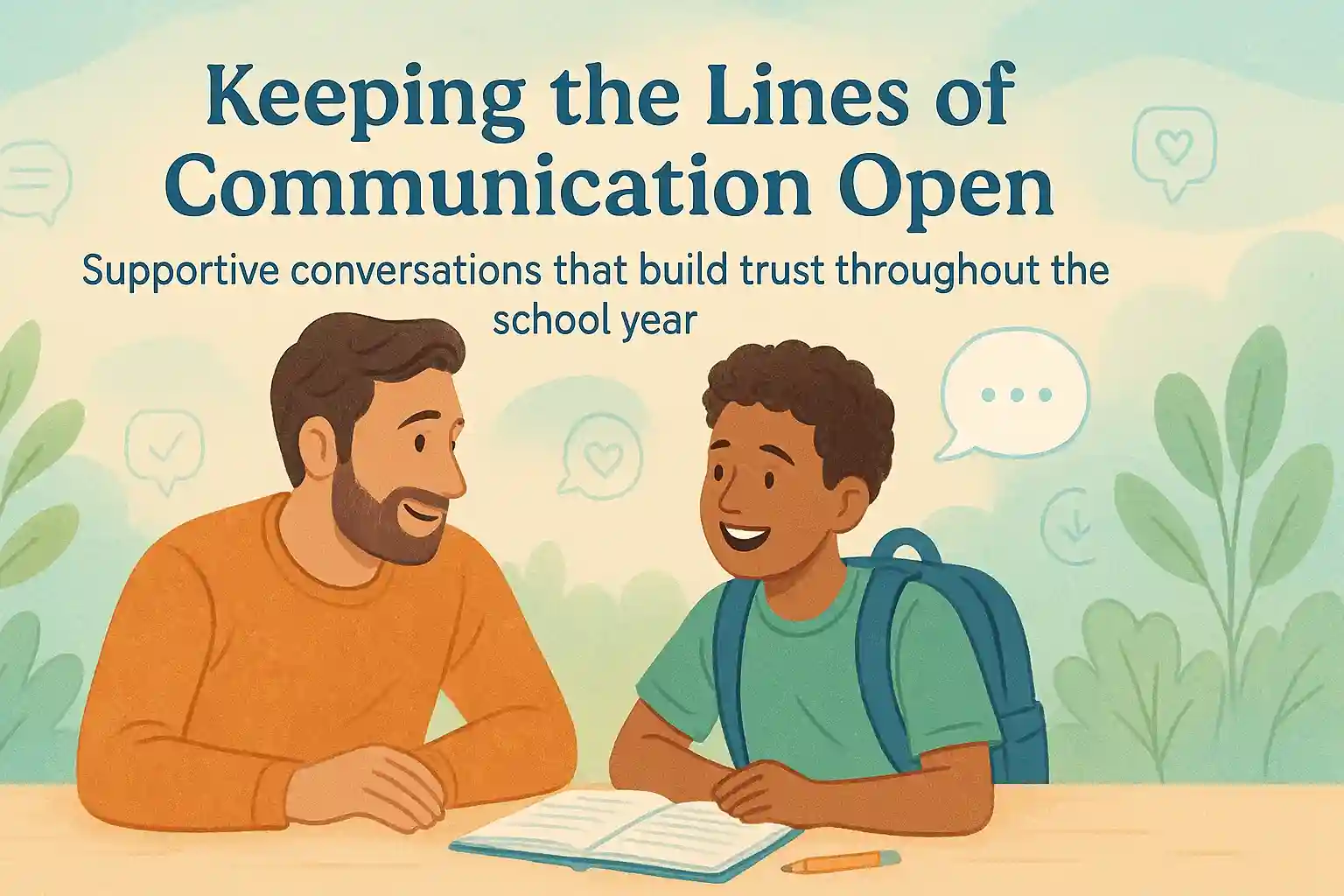A new school year always seems like a major milestone. There’s excitement in getting new notebooks, new uniforms, seeing old friends, and maybe starting new things. However, family members of all ages can experience anxiety, along with excitement. Trying to shift from a summer routine to a school routine introduces change, and change typically creates anxiety.
As the first day of school approaches, a parent, guardian, or caregiver might notice their child becoming quiet, restless, or asking lots of questions. However, children can also have physical reactions like being sick to their stomach or being unable to sleep. As a parent, guardian, or caregiver, you can be an important bridge to support. Your family can successfully navigate this transition. And, you will possibly have the ability to help your child learn some skills that may be valuable during their lifetime in handling depression and anxiety.
Here, I will provide strategies that you and your child can implement together. The strategies are not about perfection; we are attempting to establish comfort, teach coping skills, and establish the knowledge that your child is not struggling alone with feelings.
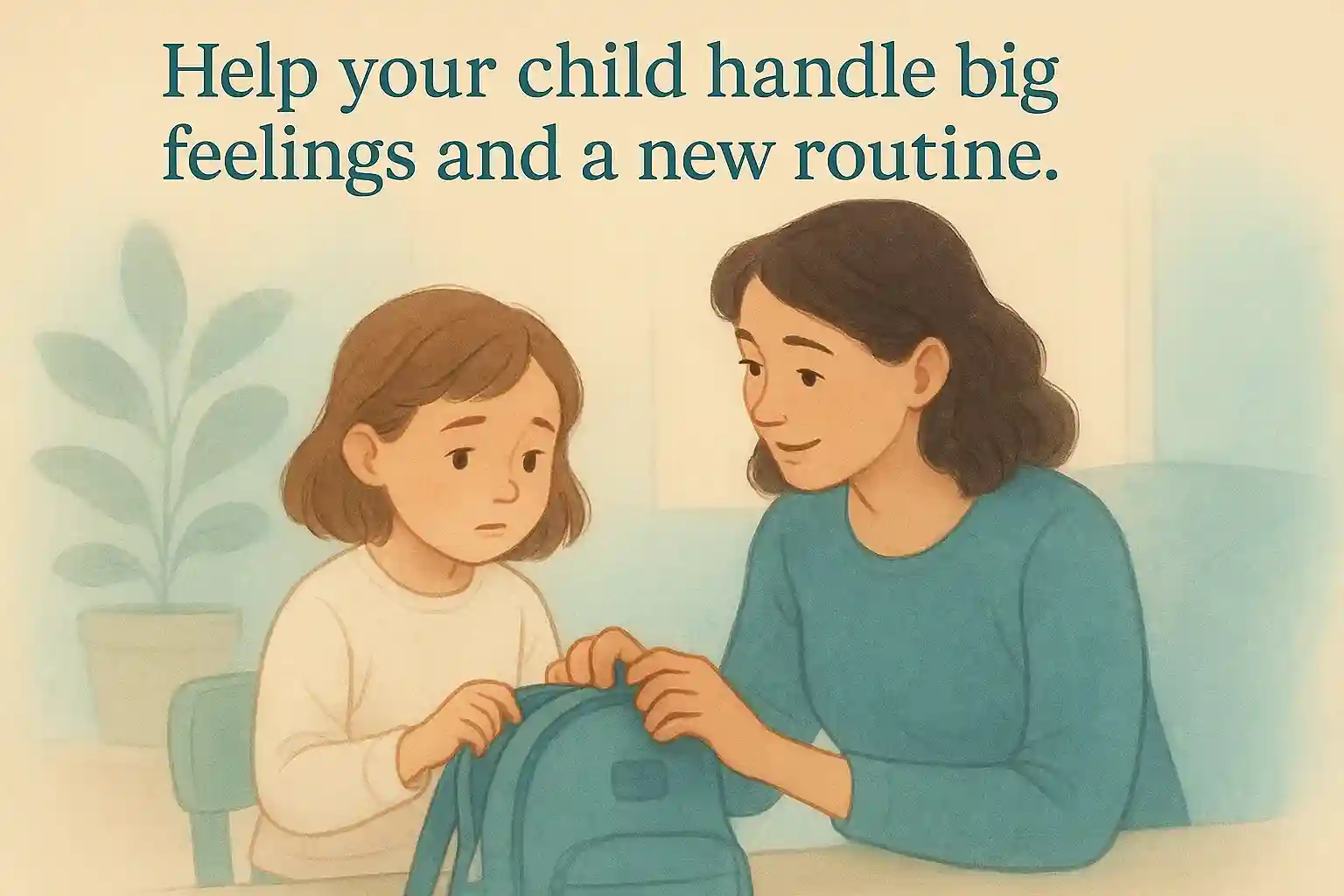
Understanding Back-to-School Anxiety in Children
For many kids, anxiety about returning to the classroom is related to the unknown. Kids wonder, What will my teacher be like? Will I have anyone to play with in my class? Will I be able to keep up with homework? These worries can weigh down kids’ thinking that affects their mood and behavior.
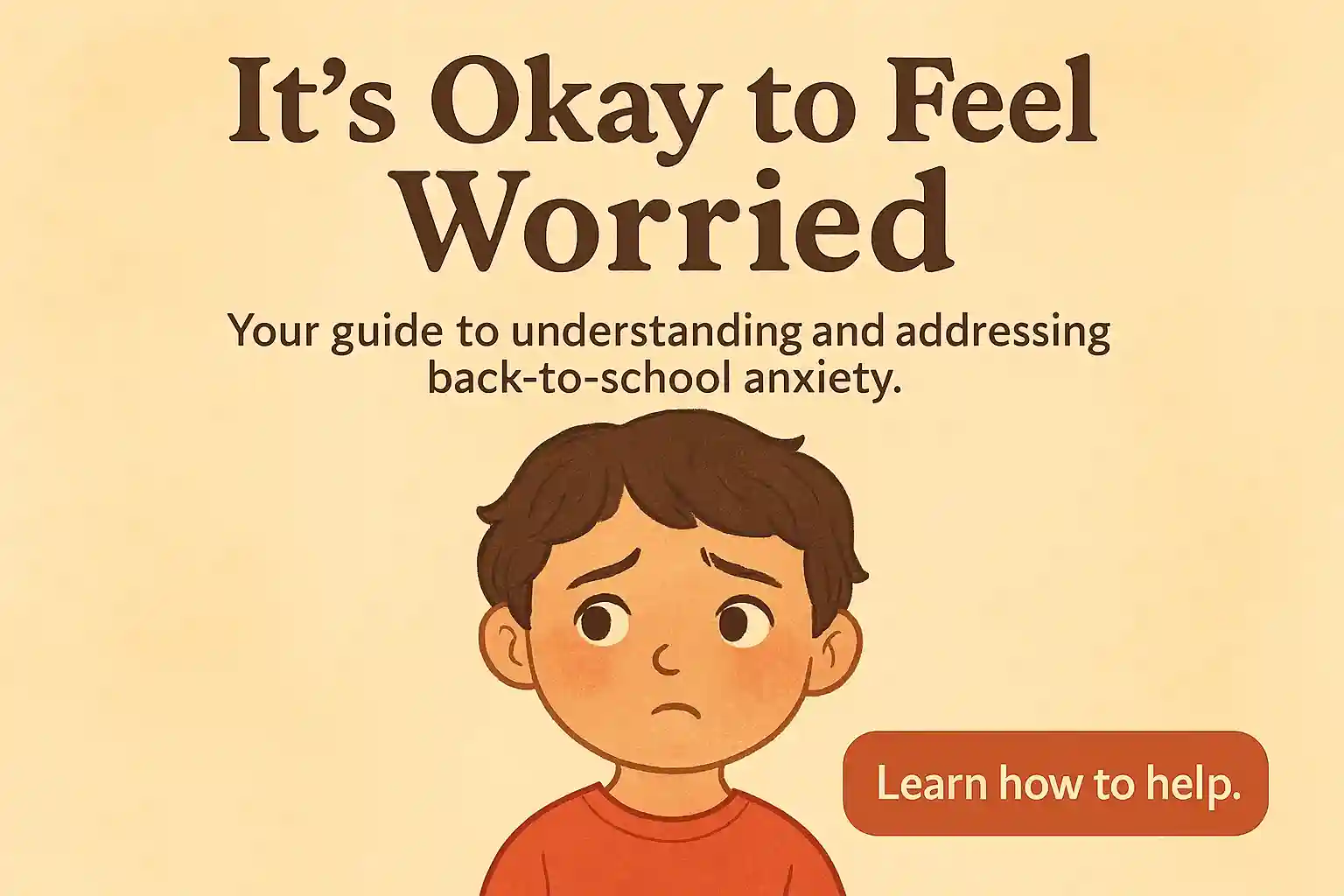
Are those Normal Jitters or a Bigger Problem?
Parents have to tell the difference between anxiety and the typical first-day nerves. Going to school makes almost every child feel a little bit anxious. This could seem like slightly more clinginess than normal, demanding more hugs or repeating the same questions. Usually, the nerves fade away after a few days.
Occasionally, though, a child’s anxiety is beyond typical concerns. For instance, should your kid decline to attend school, often experience headaches or stomachaches, or their troubled state lasts on for many weeks? This could suggest some degree of stress and can call for more investigation. Should a child’s anxiety or fear prevent their everyday functioning, that merits further attention. Early identification of anxiety lets parents offer sympathetic support before the situation worsens.
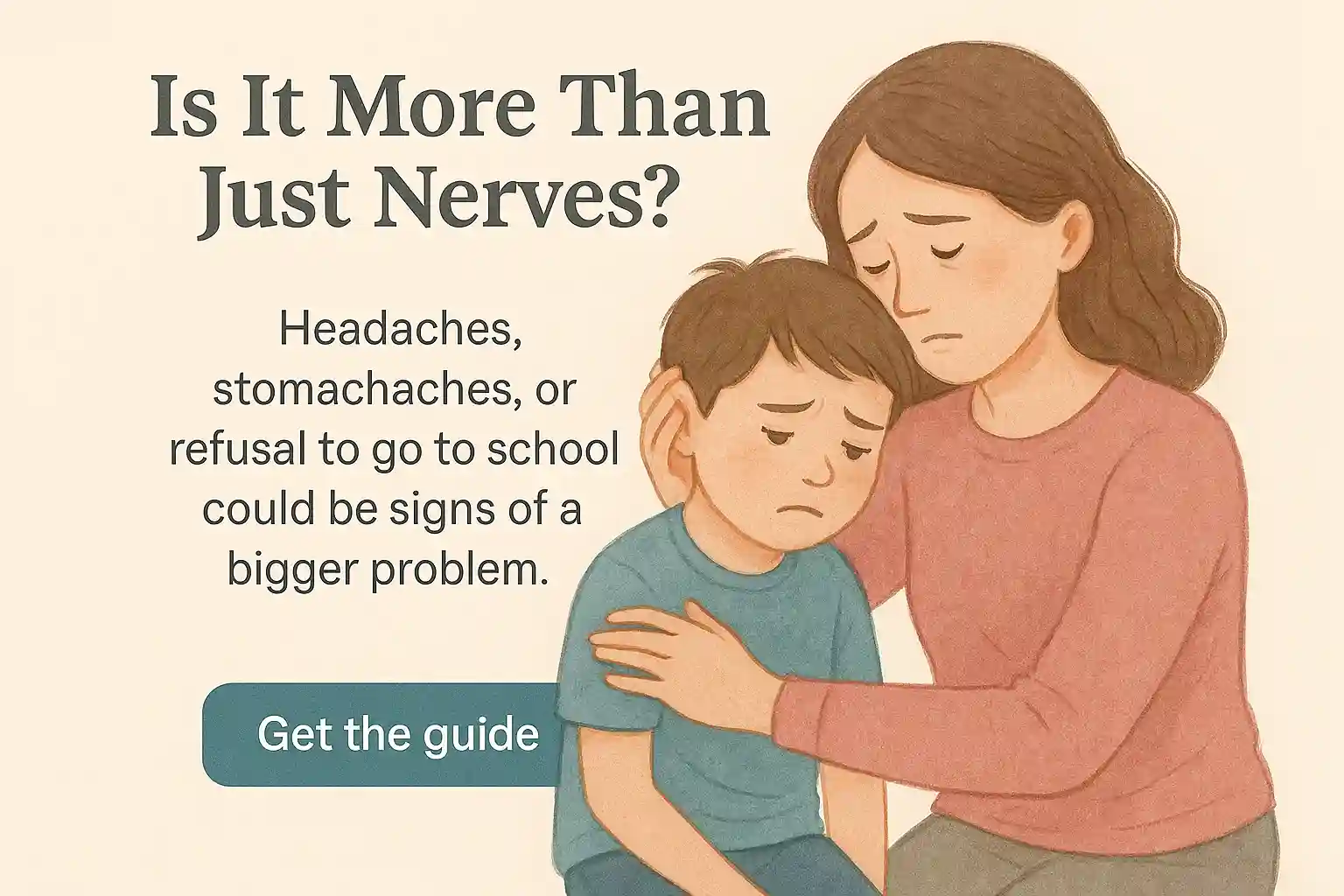
How Your Parenting Style Can Ease the Transition
The way parents respond has a significant influence on the way children cope. Children learn from our words, actions, and reactions. Parenting style can make a tremendous difference during transitions like going back to school.
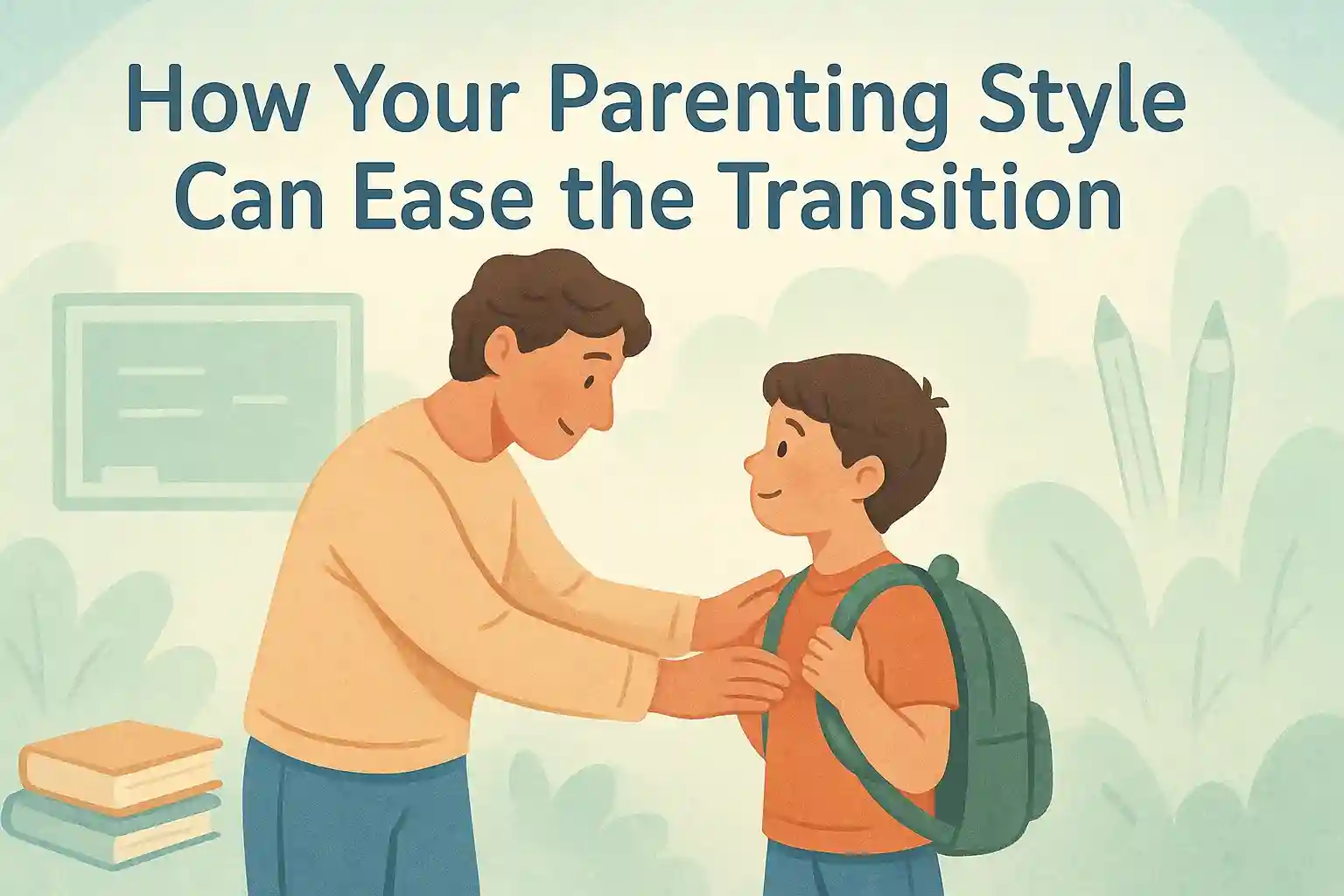
The Influence of Authoritative Parenting
Authoritative parenting style is one of the most effective styles. This style of parenting includes structure and warmth. Authoritative parents have clear rules and expectations and demonstrate empathy and flexibility. Instead of dismissing feelings, we validate feelings while encouraging a sense of autonomy.
When a child says, “I don’t want to go to school, I’m scared”, an authoritative parent might respond:
“I know you are nervous. It’s okay to feel that way. Let’s talk about what part you are most worried about, and we will find a way to make it easier together.”
This response informs two important messages to the child: that their feelings are real and they are capable of handling their situations, with support. This mix of understanding and guidance is why authoritative parenting is especially helpful for anxious children.
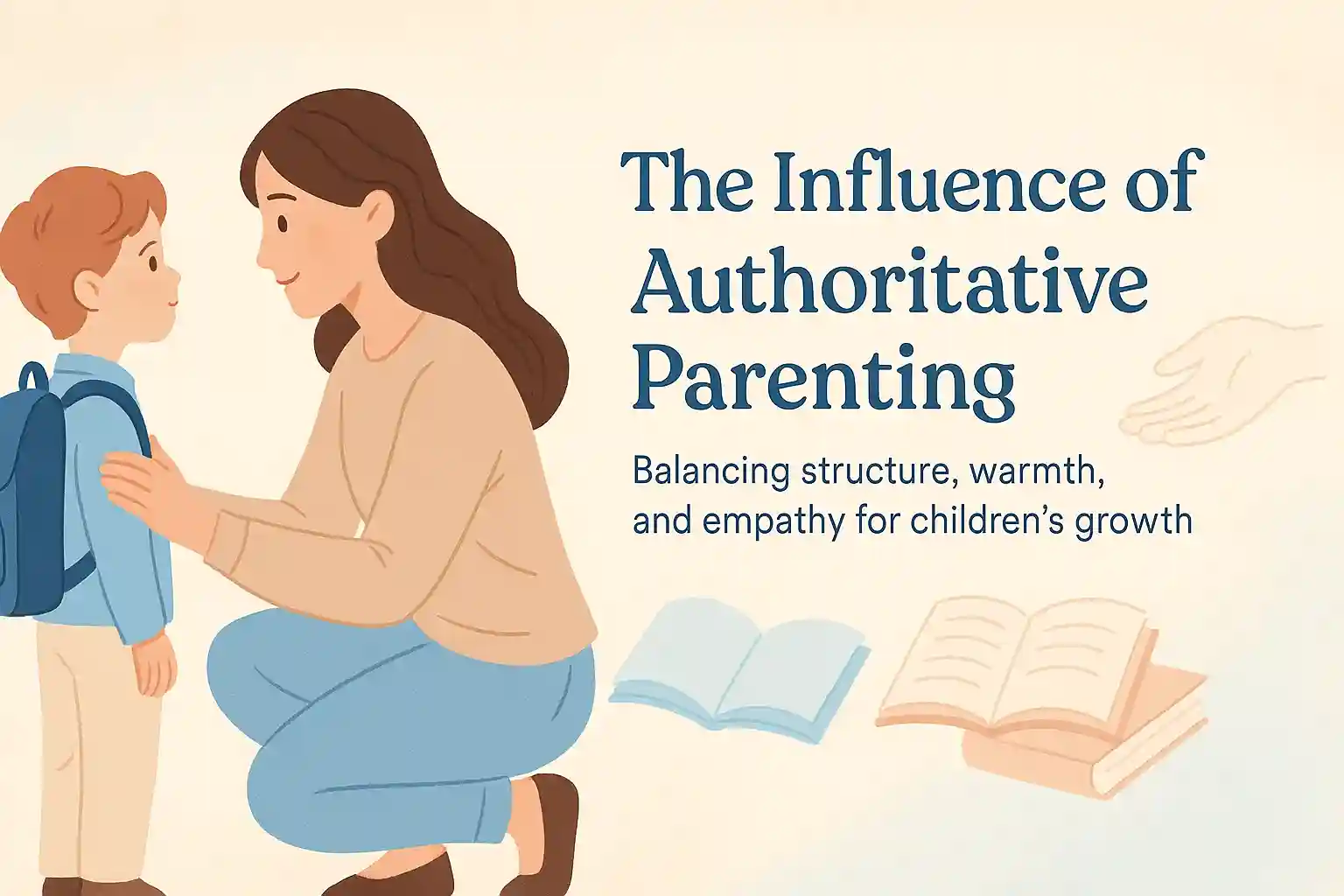
What to Avoid: The Impact of Emotionally Immature Parenting
At times, parents, though they are not trying, may unintentionally heighten anxiety. Too often, parents dismiss fears with statements such as, “Don’t be silly; you will be fine.” In both cases, the child may feel ignored. Likewise, when emotionally immature parents focus more on their own image or stress, the child’s feelings are overlooked.
In some cases, narcissistic parents may even compare children with others or expect them to hide their worries to “look strong.” These behaviors can unintentionally deepen a child’s anxiety.
Either way, please eradicate this pattern of action:
- Ignoring concerns or belittling
- Expecting children to have confidence immediately, but do not assist them in finding or figuring it out.
- Pressure children into social time or academics without listening to them, and denying their feelings.
If we do not engage in the preceding actions, we create an emotional space that is safer for children to express their emotions openly.
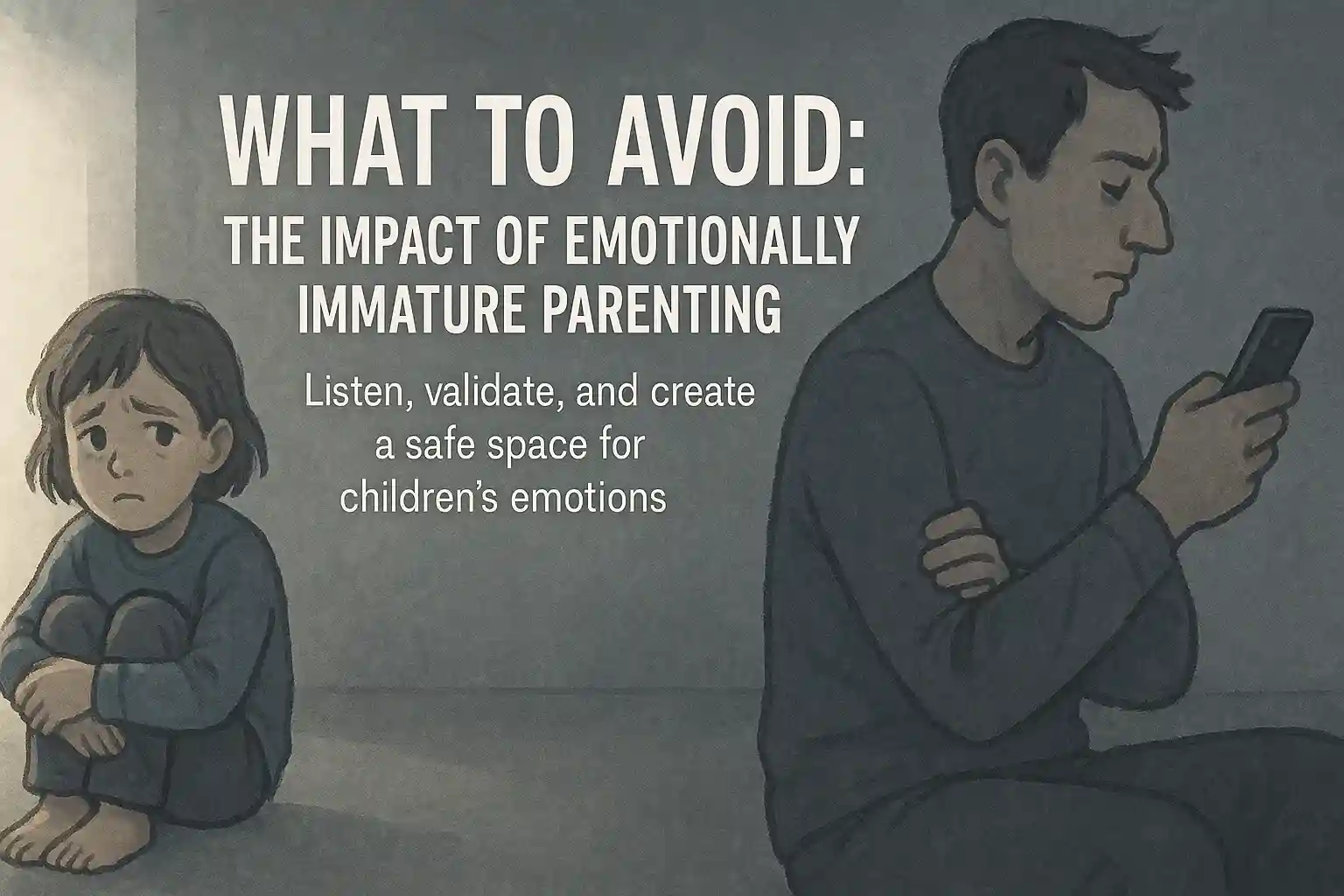
Practical Strategies and Suggestions for Caregivers to be Supportive
The role of parents, caretakers, guardians, or loved ones of a child in the transitional process is essential. When you consistently provide care givers support in the child’s life, that usually gives children reassurance and helps them transition more easily into challenging times. Here are a few practical strategies to assist before school and during the transition back to school.
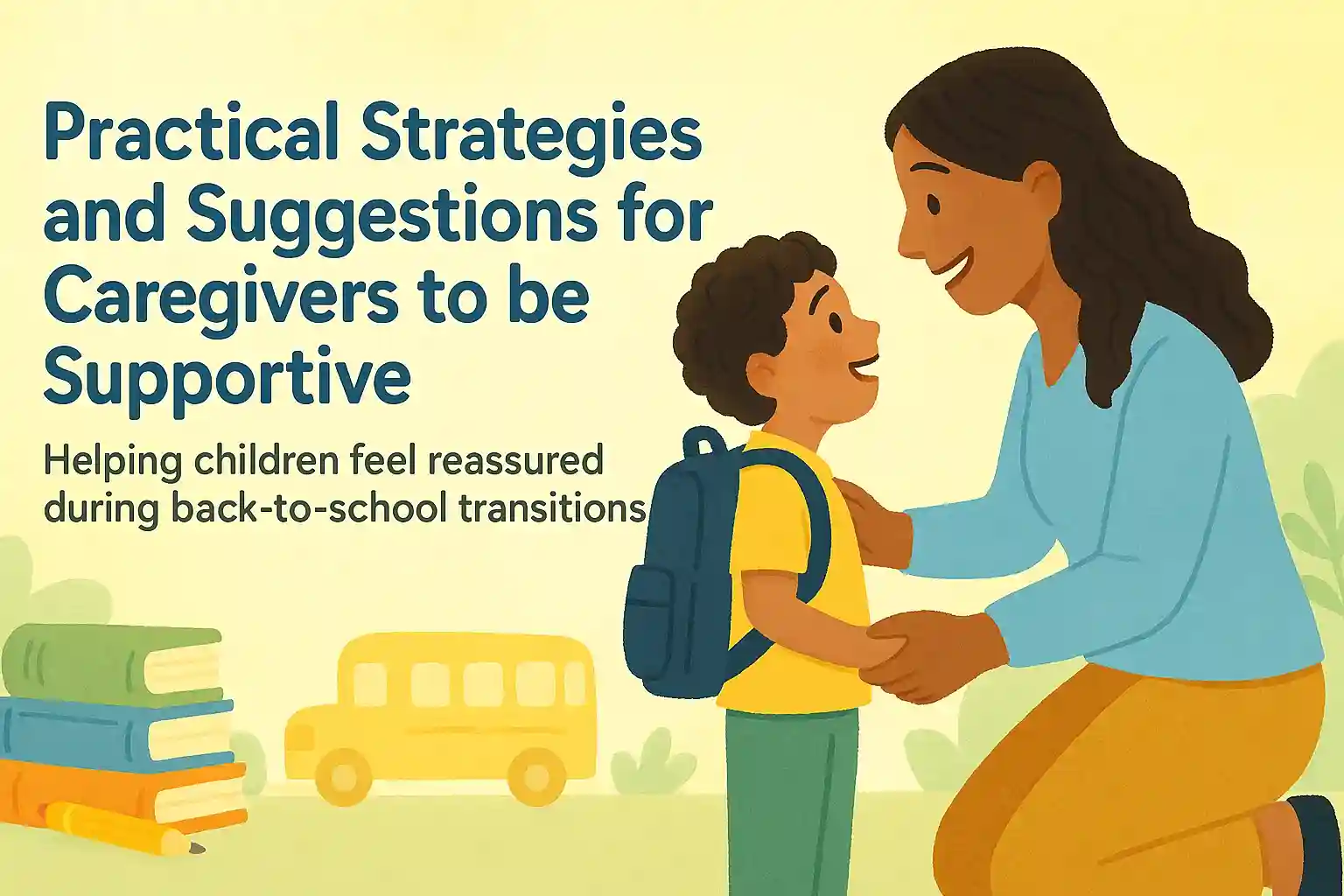
Keeping the Lines of Communication Open
Emotional support does not stop on day one. Keeping lines of communication open is key throughout the school year.
- Use open-ended questions: Instead of “Was it a good day?” Try “What was the best part of your day?”.
- Listen without the need to solve straight away: Sometimes kids need to be heard and not solved.
- Normalize the nervousness: Share your own anxiety stories about school or work, and how worry is normal and temporary.
When to seek professional help
Most school anxiety will wear off and fade naturally over time and with support; however, if anxiety appears to be severe, continuous, or affecting day-to-day living, it may be time to look for professional support – and this can happen in many ways. Here are some signs to look for:
- Continued refusal to attend school.
- Ongoing physical complaints with no medical issue.
- Continual fear or sadness lasting for more than a few weeks.
- Withdrawing from friends and social events they once enjoyed.
Talking to your own pediatrician, school counselor, or child therapist can give you advice on steps suited to your child. At EaR (Emotional Ability Resources), we encourage parents to take professional support as a step of strength and not weakness.
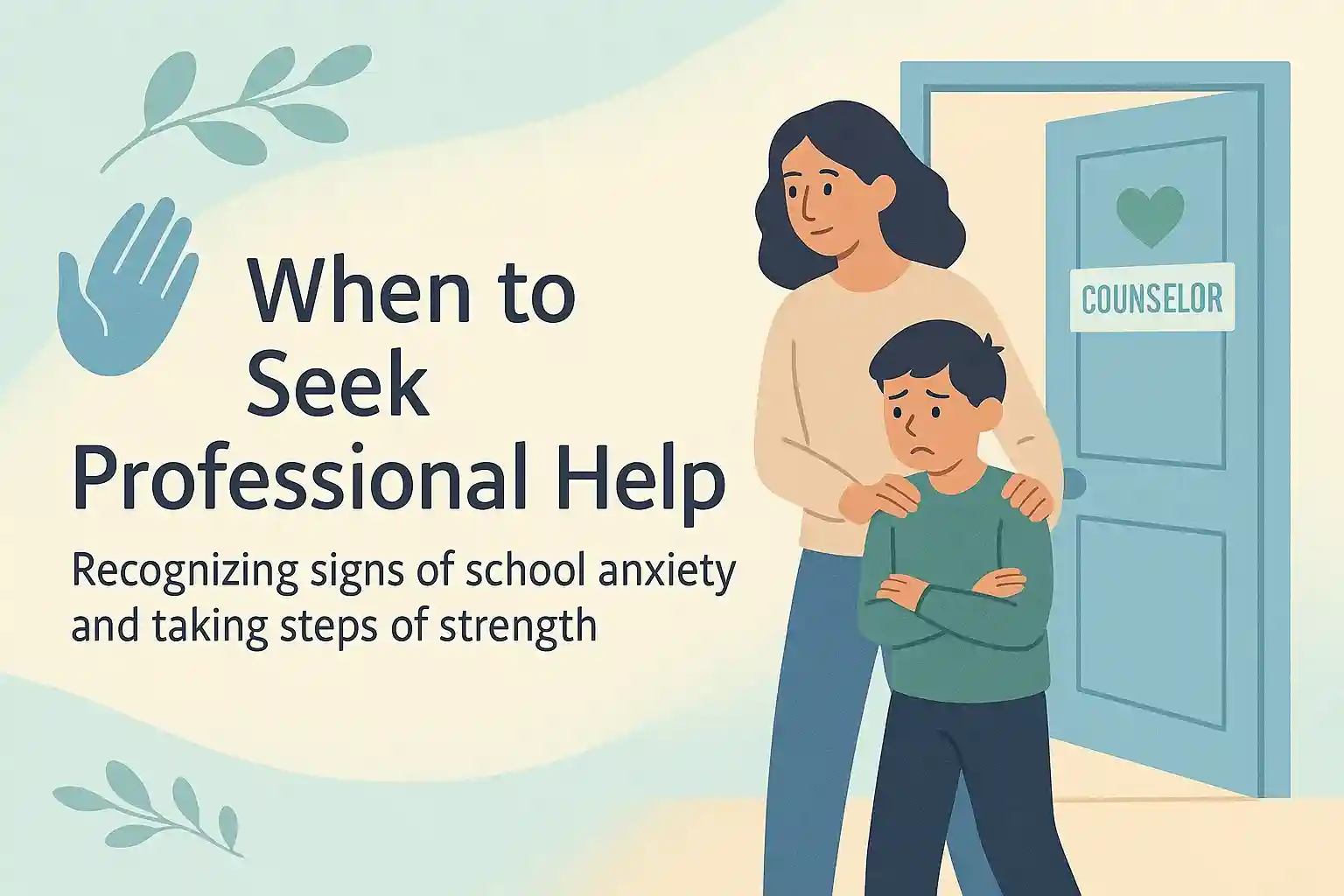
Back-to-School Anxiety FAQs
Q1. What are the most frequent physical symptoms of school anxiety in children?
They could grumble about stomach pains, headaches, sweaty hands, or lie awake at night over homework.
Q2. How can I know whether my child’s anxiety is just a phase or a more serious problem?
Probably a phase if the worry goes away in a week or two. Should it continue, grow worse, or disturb daily life, it could be more dangerous.
Q3. What can I do if my child won’t go to school in the morning?
Be calm and patient. Avoid lengthy arguments. Reassurance, regular routines, and teachers or specialists should be consulted if refusal continues.
Q4. Is there a certain book or resource available that can help a young child grasp their anxiety?
Many child-friendly books provide clear stories that define anxiety and provide understandable coping techniques.
Q5. How do I communicate most effectively with the teacher about my child’s anxiety?
Be truthful and thorough. Describe what your child has difficulties with, what aids at home, and see if the teacher can provide the same help in class.
Q6. What are some age-appropriate strategies for coping with anxiety for a teenager and a younger child?
Teenagers may find journaling, meditation, or honest chats with friends to be helpful. Play, art, or soothing activities like bedtime stories can offer comfort to younger youngsters.
Q7. How does an authoritative parenting style specifically help an anxious child?
It provides children both order and comfort—exactly what anxious kids need—by blending emotional warmth with explicit expectations.
Q8. When is it time to seek professional help for my child’s school anxiety?
It is advisable to talk with a pediatrician, counselor, or therapist if anxiety is chronic, intense, and debilitating daily life.

